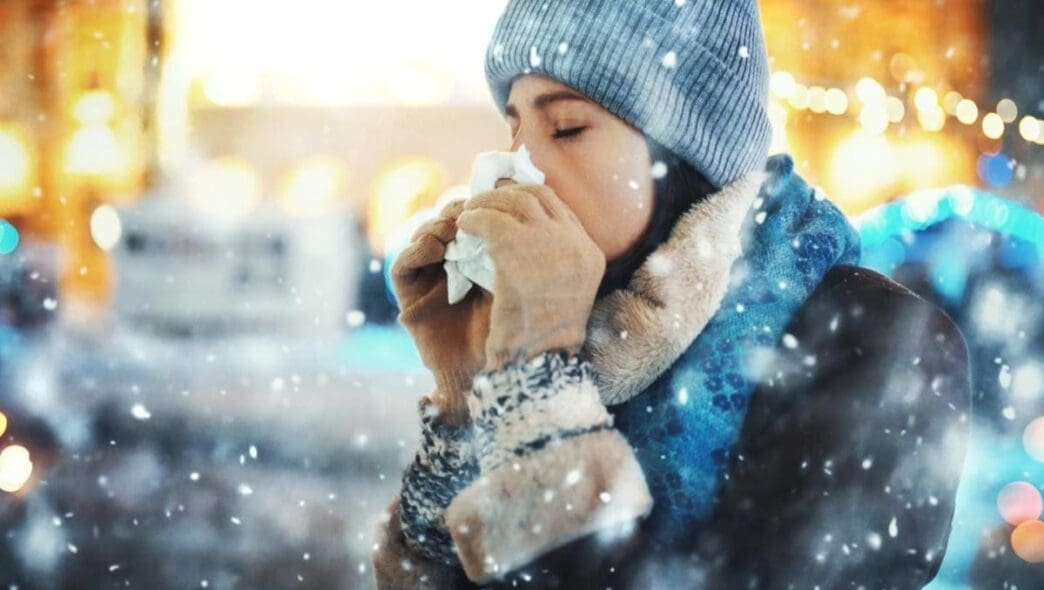Ever wondered why your nose runs more in winter, even without a cold? It’s not your imagination; winter gives viruses a helping hand in spreading!
During the chilly months, everyone seems to know someone sniffling or coughing. Contrary to what our grandmothers said, stepping out into the cold with wet hair doesn’t give us a cold by itself. The real culprits are viruses that thrive when temperatures drop.
Cold weather is more than just an inconvenience; it creates the perfect environment for viruses like the common cold, flu, and even COVID-19 to thrive. These viruses stay active longer and multiply faster in colder and drier conditions. In addition, as the mercury falls, people huddle indoors, creating ideal settings for these viruses to jump from one host to another.
Interestingly, the flu and RSV typically spike in fall and winter, marking a predictable pattern. However, COVID-19 has challenged these norms with its summer surges post-2020. This anomaly can be linked to new variants and waning immunity, making it a year-round concern.
Cold weather also influences the virus’s physical structure, particularly influenza’s. The virus’s outer coating becomes more robust and rubbery, aiding its travel between hosts. Meanwhile, dry air, common in winter, assists the virus in staying airborne longer as smaller particles that linger after a sneeze or cough.
The body’s immune response is another piece of the puzzle. Breathing in cold air might weaken the respiratory tract’s defenses, providing an easier entry for viruses. This is why wrapping a scarf around your face isn’t just for warmth; it’s a protective measure against airborne invaders.
Moreover, limited sunlight in winter means less vitamin D, crucial for a robust immune system, and many of us are less active, given icy sidewalks and snow-covered trails. Less exercise translates to lower immunity.
Finally, the dry, cold air does a number on our noses and throats, drying out the protective mucous that usually traps viruses. With these barriers compromised, viruses have a red carpet entrance to your body.
So, while the cold itself isn’t making you sick, it’s certainly giving viruses a nicer venue to work with.
Staying healthy in winter isn’t just about bundling up; it’s about smart practices like handwashing, maintaining a balanced diet, and staying active to keep your immune system in top shape.
Source: Yahoo ˙ Youtube







